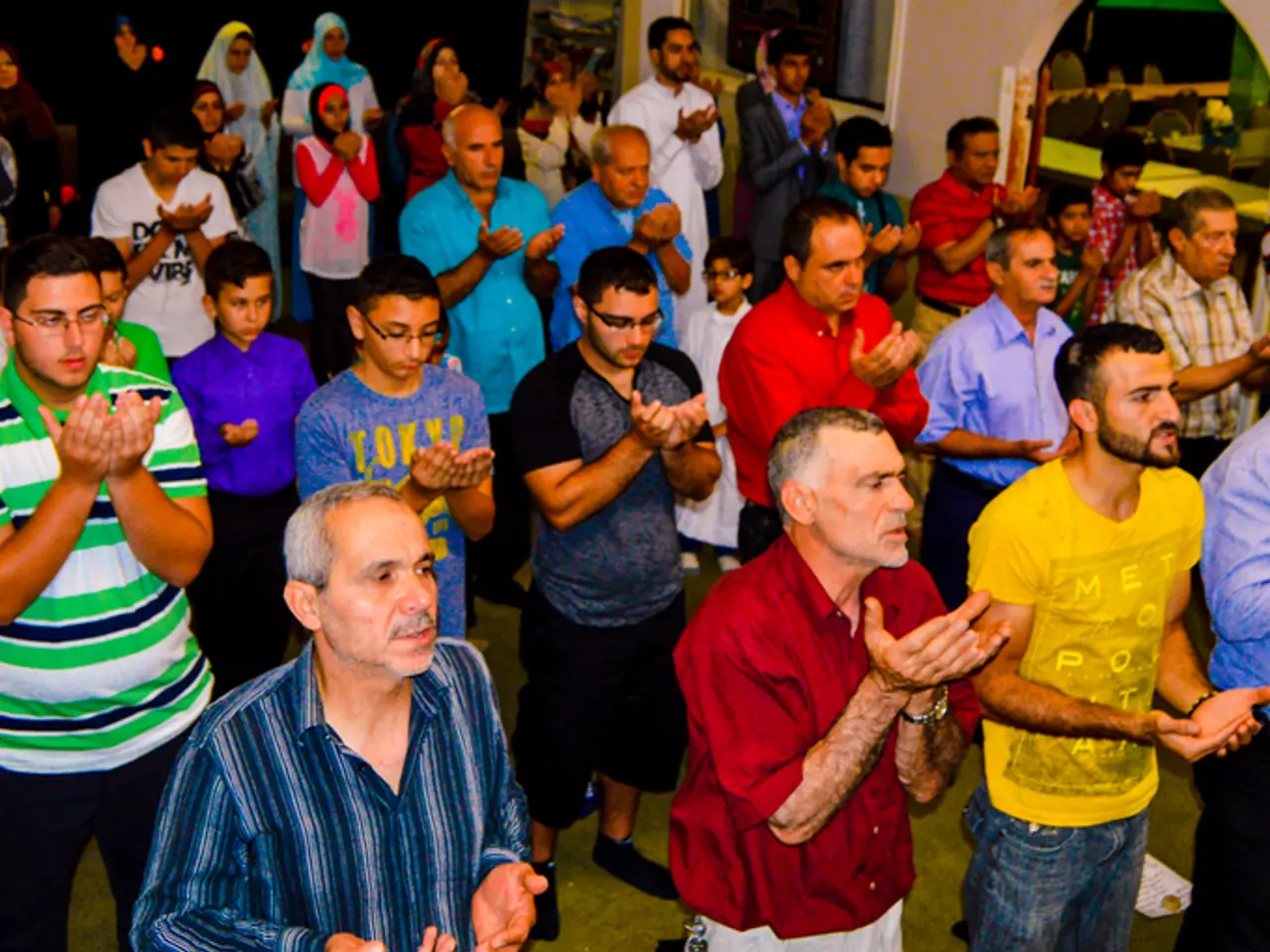Impact of Religion on the Path to Recovery
Faith, a concept deeply intertwined with trust, conviction, and belief, takes on various forms across different perspectives. While it is often associated with religious practices, faith can also be understood from a non-religious or postmodern standpoint.
Religious Perspectives on Faith
The traditional religious view of faith is rooted in a conviction or trust relating humans to a supreme God or ultimate salvation. In biblical Hebrew tradition, faith primarily implies faithfulness or truthfulness in adhering to a covenant or promise, such as the Covenant between God and Israel.
Different theological views co-exist within Christianity. Thomas Aquinas emphasized faith as an intellectual assent to divine truths revealed by God, a voluntary act that is distinct from knowledge but foundational to belief. Martin Luther highlighted faith as trust, while John Calvin viewed it as a gift freely granted by God. The New Testament defines faith as “the assurance of things hoped for, the conviction of things not seen,” emphasizing belief without empirical proof.
In Islam, faith (īmān) distinguishes believers, considered achievable only by divine will, illustrating a concept deeply tied to submission and trust in God.
Modern theological views, such as those of Friedrich Schleiermacher, focus on the subjective experience of faith, while 20th-century theologians like Karl Barth stressed a return to objective divine revelation beyond individual subjectivity.
Non-Religious and Postmodern Perspectives
Some views consider faith as a broader psychological or existential stance involving trust and commitment, irrespective of traditional religion. A faith journey can involve reason, observation, and personal choice, where faith grows through a willingness to believe, interaction with evidence, and lived experience.
Postmodern approaches challenge traditional scriptural authority, redefining faith independently from religious texts. This process, called faith deconstruction, shifts the authority from scripture to the self, emphasizing individualized truth over institutional doctrine.
In secular contexts, faith can be understood as trust or confidence in ideals, values, or oneself, involving a voluntary commitment without the necessity of proof but grounded in reason, experience, or personal conviction.
The Role of Meditation and Prayer
Mindfulness meditation fosters greater self-awareness and creates distance between thoughts and reactions. In stillness, we can experience a deep sense of peace, unity, and profound love by connecting with the intrinsic energy that unites our experience with the fabric of all life.
Prayer is a way of communicating with a higher power, strengthening us and aligning our subconscious mind to work with us, not against us. Sitting in silence during meditation creates a space where the soul is receptive to holy communion, challenging us to completely let go and open our heart and mind to the present moment.
The Evolution of Faith Beyond Established Teachings
Faith can stem from spiritual principles, personal experiences, a higher power, or the universe without established teachings. Some people who have abandoned their religious beliefs place their faith in Twelve Step programs or their principles. Cultivating faith can deepen spirituality and develop a reservoir of faith to sustain during stressful times.
Meditation and prayer connect us to ourselves and our source of strength, loosening the ego's grip and encouraging trust in inner guidance. Faith encourages trust in the process and shifts focus from negative to positive thoughts. Letting go of self-will is a challenge, especially for people in recovery, but it is a continual process in life, involving relinquishing desires, youth, past experiences, people, unfulfilled hopes, and negative emotions and beliefs. Trusting that things will work out as they are meant to, even if not always according to our plans, is a radical shift in perspective that benefits our lives and those around us.
[1] Encyclopaedia Britannica, "Faith," https://www.britannica.com/topic/faith [2] Internet Encyclopedia of Philosophy, "Thomas Aquinas," https://www.iep.utm.edu/thomas/ [3] Oxford Handbook of Religion and Spirituality in Social Work and Social Welfare, "Faith," https://www.oxfordhandbooks.com/view/10.1093/oxfordhb/9780190655732.001.0001/oxfordhb-9780190655732-chapter-12 [4] The Postmodern Bible, "Faith Deconstruction," https://www.postmodernbible.com/faith-deconstruction/
- Therapists working with individuals in personal-growth journeys might guide clients to explore faith as a psychological or existential commitment, rather than a religious dogma, fostering self-awareness and promoting a healthy lifestyle.
- In the realm of fashion-and-beauty, some brands have started incorporating mindfulness practices into their product lines, encouraging customers to develop a deeper connection with themselves and the universe, thereby providing a unique blend of fashion and spirituality.
- Education-and-self-development initiatives can benefit from incorporating discussions on faith that encompass various perspectives, enabling students to explore and understand diverse cultural practices and family-dynamics regarding faith.
- Relationships can be enriched through shared spiritual beliefs, as partners find solace and deeper connection by meditating together and practicing healthy-cooking techniques grounded in mindfulness.
- With the rise of social media platforms and food-and-drink blogs, individuals can share their personal journeys of exploring faith through cooking, fostering camaraderie and connecting with others who value the role of mindfulness and self-awareness in their lives.




